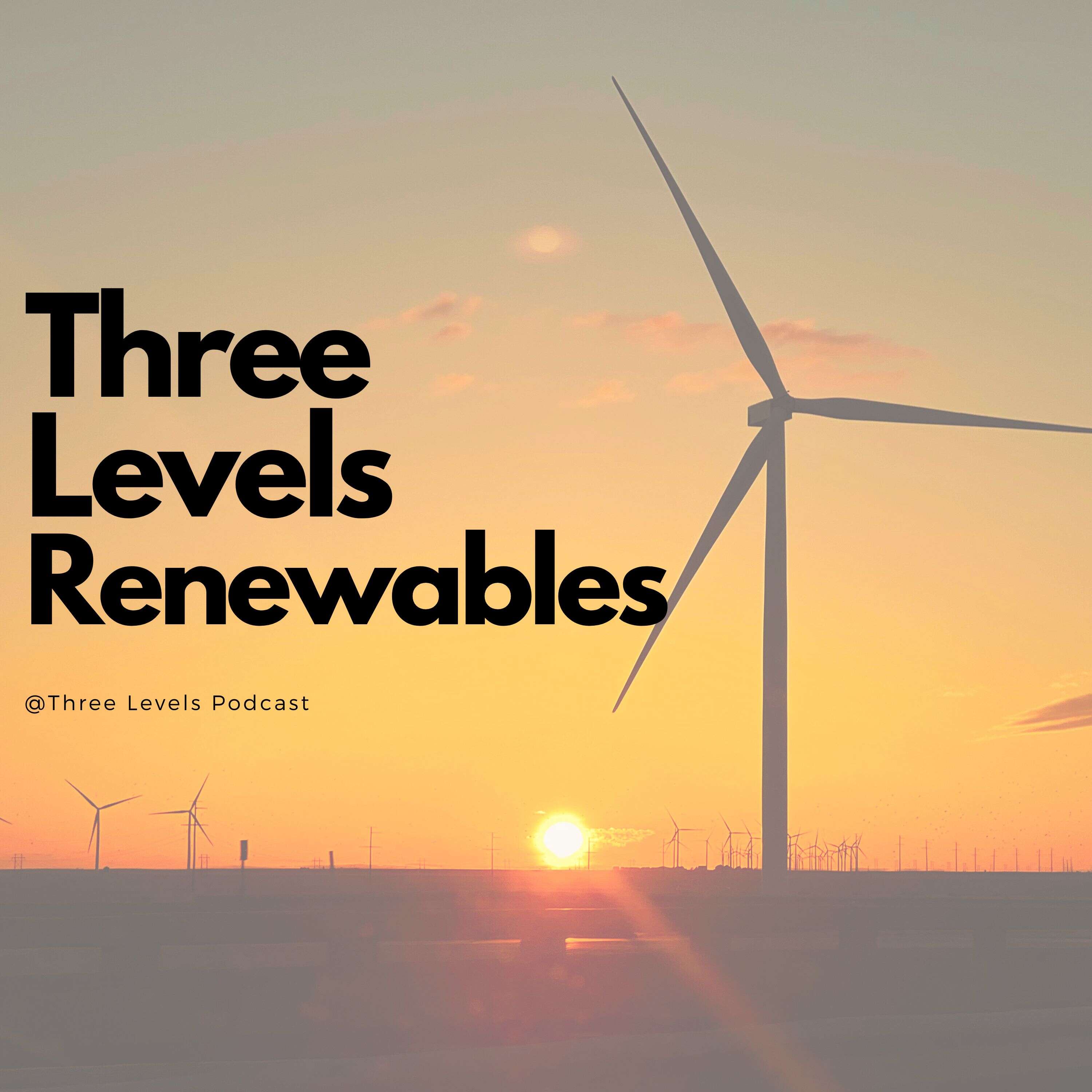Explain Water Concerns for Hydrogen Production in 3 Levels
In this episode of Three Levels Renewables, the focus is on the water consumption concerns of producing and using hydrogen. The concept of water consumption for hydrogen production is clarified, considering water withdrawn but not returned due to evaporation, incorporation into products, or quality degradation.<br/><br/>Level 1, we discussed the water needs and outputs of different hydrogen production processes. Processes like electrolysis use water as a feedstock, and additional water is required for cooling. Traditional fossil-based hydrogen production pathways, such as natural gas steam reforming and coal gasification, also demand significant water. The type of electricity source, whether renewable or fossil-based, affects water consumption. Green hydrogen, produced with renewable energy, has comparable or even lower water usage than fossil-based hydrogen production pathways. Hydrogen fuel cell systems can potentially generate 9 liters of water, of which around 8% can be recovered without additional condensing systems, meeting drinking water standards, with nickel and aluminum concentrations controlled.<br/><br/>Level 2, the concern of hydrogen production depleting water resources is addressed. Green hydrogen's water consumption is found to be significantly lower than other large-scale processes like coal or nuclear electricity production. The impact of green hydrogen production on water availability is assessed, and strategies are proposed to minimize its strain on local freshwater resources. These include utilizing diverse water sources, careful project placement, and revising water pricing structures.<br/><br/>Level 3, we discussed the global warming impact of hydrogen emissions, highlighting a study challenging the conventional use of Global Warming Potential (GWP). This research suggests that hydrogen's atmospheric impact is greater in the near-to-medium term than previously understood, with varying outcomes based on hydrogen production methods and emission levels.<br/><br/>Music credit, Great podcast intro By Lundstroem, https://takenode.org/certificate?id=2dd825c1-5594-42d2-a937-178f6ea3413d<br/><br/>Reference and Citation:<br/><br/>Rocky Mountain Institute. 2023. "Hydrogen Reality Check: Distilling Green Hydrogen’s Water Consumption." Accessed August 26, 2023. https://rmi.org/hydrogen-reality-check-distilling-green-hydrogens-water-consumption/<br/><br/>Lampert, David J., Cai, Hao, Wang, Zhichao, Keisman, Jennifer, Wu, May, Han, Jeongwoo, Dunn, Jennifer, Sullivan, John L., Elgowainy, Amgad, Wang, Michael, and Keisman, Jennifer. 2015. "Development of a Life Cycle Inventory of Water Consumption Associated with the Production of Transportation Fuels". United States. https://doi.org/10.2172/1224980. <br/><br/>Pingping Sun, Amgad Elgowainy, October 2019, “Updates of Hydrogen Production from SMR Process in GREET® 2019”, Argonne National Laboratory.<br/><br/>U.S. Department of Energy Hydrogen Program, “Hydrogen Data”, https://www.nrel.gov/docs/gen/fy08/43061.pdf<br/><br/>Juan E. Tibaquirá, Kiril D. Hristovski, Paul Westerhoff, Jonathan D. Posner, “Recovery and quality of water produced by commercial fuel cells”, International Journal of Hydrogen Energy, Volume 36, Issue 6, 2011, Pages 4022-4028, ISSN 0360-3199, https://doi.org/10.1016/j.ijhydene.2010.12.072.<br/><br/>U.S. Department of Energy. 2023. "Water and Emissions from Fuel Cell Vehicles." Accessed June 11, 2023. https://www.energy.gov/eere/fuelcells/water-emissions-fuel-cell-vehicles.<br/><br/>Ocko, I. B. and Hamburg, S. P.: Climate consequences of hydrogen emissions, Atmos. Chem. Phys., 22, 9349–9368, https://doi.org/10.5194/acp-22-9349-2022, 2022. Received: 03 Feb 2022 – Discussion started: 18 Feb 2022 – Revised: 20 May 2022 – Accepted: 13 Jun 2022 – Published: 20 Jul 2022, https://acp.copernicus.org/articles/22/9349/2022/<br/><br/>

